Today in Washington DC, the NATO summit concludes.
Given the Russian invasion of Ukraine, and the rising threat to NATO’s existence posed by populists with a fetish for dictators — hello, Donald — I thought it might be a good idea to go back to the beginning and ask the most basic question.
Why does NATO exist?
Norman Angell isn’t a name much remembered today but the British journalist and author was a significant figure in the first half of the 20th century. In 1910, Angell published a book in which he argued that — in a world connected by technology, trade, and finance — nations could no longer profit from making war on each other. War was irrational. Sensible leaders should never again consider starting one. But this message was bastardized in the popular press and became, “nations will never again make war on each other.” Angell tried repeatedly to correct this misinterpretation but he never managed to stamp it out. When the First World War erupted, he was mocked. (Even today his name occasionally pops up as one of the fools who insisted there would be no war.) Fortunately, the judges of the Nobel Peace Prize were better readers than were the mockers, and in 1933 Norman Angell became the only person awarded a Nobel Peace Prize for publishing a book.
In 1942, Angell published another book. This time, in the United States.
The date and location are significant. For many years, the American public had watched the growing aggression of fascism in Europe, Asia, and Africa and shrugged. It was far away. It had nothing to do with America. Stay out of it.
Nazi Germany swallowed Austria. Then Czechoslovakia. Britain and France cajoled the Germans, pleaded, and threatened. They would do anything to avoid war.
Most Americans didn’t care.
In September, 1939, the Nazis invaded Poland. Britain and France finally declared war. Americans shrugged.
In April, 1940, the Nazis invaded Denmark and Norway. Americans shrugged.
In May, the Nazis swept through the Netherlands, Belgium, and France. Britain seemed months or even weeks away from destruction. In June, 1941, the Nazis invaded the Soviet Union, and it seemed that all of Europe and Africa would become Hitler’s empire. Still, the United States did not go to war. President Franklin Roosevelt wanted to intervene but he could not. Isolationist sentiment — promoted and expressed by the “America First Committee” — was too strong.
Finally, on December 7, 1941, the Japanese Imperial Navy bombed Pearl Harbor and Hitler declared war on the United States. America was in. It didn’t want to be. But it was.
That was when Norman Angell published his book.
It was entitled Let the People Know. In it, he made the case for fighting fascism. But more than that, he made the case for the free nations of the world to band together in a permanent alliance of mutual self-defence.
Now I’ll give the floor to Norman Angell.
In every European democracy today certain truths are accepted as so obvious and self-evident as not to be worth discussion. The patriot in France, for instance, agrees that France's liberation and future security are dependent upon her co-operation with Britain and other nations also menaced by Hitler. The lesser states of the continent know perfectly well that their liberation and future security depend upon hanging together, upon unity; the Englishman knows that to help China or Russia is to help Britain defend herself; that if by some means China could in the next few months push back the Japanese armies, and the Russians push back the Germans, then every British city, as a direct consequence, would sleep more soundly with diminished risks of bombardment. All this is so evident to the average Englishman today that you would merely irritate him by dwelling upon it. Why labor the obvious? But this thing, today so obvious, was yesterday — a few years ago only — hotly denied.
The suggestion which some did make in 1932 that Britain had an interest in helping China to defend herself, or three years later the same kind of interest in helping Ethiopia, or later Spain, or later Czechoslovakia, did not then seem an expression of the obvious; it seemed to very many the expression of arrant nonsense, of dangerous warmongering. What earthly interest could Britain have in an obscure quarrel on the other side of the earth? What concern was the fate of Ethiopians or Czechs to us?
Yet if the truth which all see today could have been seen a little earlier, the probability is that the world would not now be at war.
That surely is the lesson of Europe. These states of continental Europe have perished as free nations because each said in effect: "We refuse to be concerned in defending the security of the rights of others; we will defend only our own." Because all said this in one form or another, they were all at Hitler's mercy; at his mercy however much they armed. A Norway or a Denmark might devote 90 per cent of all its national resources to arms and still be at his mercy. The more these democracies armed while refusing to co-operate for mutual defense, the better were the Nazis pleased; for they knew that, given this one condition of separate and individual defense, the arms they piled up would by their inevitable conquest become instruments of Nazi power. The splendid armaments of Czechoslovakia, the great arsenal of the Skoda works, became part of the armament of Germany without the firing of a single shot because the men of Munich had for years made their slogan: "We will not defend others, only ourselves." The slogan had eaten into the heart of France where so many had said not merely, "Why should we fight for the Czechs?" but also, "Why should we fight for the English?" It had eaten into the heart of many English, who, years before, had said, "Why should we fight for the Manchurians, or the Chinese, or the Abyssinians, or the Spanish Republicans, or for Danzig or the Rhineland?" From the moment that Hitler could get those whom he planned to conquer to be guided by such slogans, he knew full well that they would be at his mercy, for he could pick them off one by one, applying the most hackneyed device of conquest and tyranny: divide and rule.
We know now that the defense of Greece is part of America's defense; the defense of China part of Britain's defense; the defense of Yugoslavia a part of the defense of China.
If I were to elaborate that truth at any length the reader would find it platitudinous, and tiresome. John the garage hand as much as the professor would agree upon its obviousness. But, once more, this thing we thus deem obvious was denied by most of us — denied with anger and contempt as theoretic nonsense — only a year or two ago, and in the case of some of us only a few months ago — until, that is, December 7, 1941. In recent years it has been denied alike by British, Americans, French, Danes, Dutch, Norwegians, Greeks, Poles, Yugoslavs. . .
It will be said perhaps that the facts were not previously available for the judgments we now draw; that the world could not foresee the power of aggression which Germany and Japan have developed. But the peculiarity of the situation which we now face was always inherent in that method of anarchy in the international field which we have always insisted upon perpetuating. So little is it true that this development could not have been foreseen, that for years a somewhat despised minority has insisted that the perils we now confront would quite inevitably arise in lesser or greater degree unless we faced the meaning of the obvious fact which we seemed determined to ignore.
Even before the end of the last world war the essential fact was obvious enough.
At this point, Angell quoted from something he wrote in May, 1918, six months before the First World War ended. In it, he said the only way to ensure war didn’t come again was for free nations to band together in mutual self-defence.
The basis of all civilization is the defense of each by all; the defense, by the community, of the rights of the individual, beginning of course with the most elementary right of all, the Right to Life, to existence, the right not to be tortured, killed, destroyed. And it has been obvious, at the very least since the last war, that this principle is as true of the relationship of nations as of men.
We recognize this truth in the relationship of persons, within the limits of the nation. Suppose when a person was murdered, the community as a whole said, "Well, after all, it is no affair of ours; it is not our quarrel; let the parties concerned settle it. Why should we expend our taxes on police and courts interfering in the quarrels of others?" If we said that, then there could be no peace, no order, no right, no law, no justice, no civilization. If each man, each household, each political party, each trade-union, each church, each organization had to defend itself by its own power, we know that the whole thing would disintegrate into lawless and bloody violence: into another Dark Age.
A common form of escape from the application of this principle to the relations of states has been to argue that you cannot hale a nation into court and punish it as you can a person. But, of course, in the case of the aggressions of the last twenty years, there was no question of haling a nation to court or punishing it, but of defending a nation the victim of violence. And that we can do, for we are now doing it. We are not discussing here some utopian scheme of world government. We are discussing why we could not have recognized earlier the principle we now recognize and are actually applying in practice.
We should face all the implications of the truth that the present peril of the democracies is explained by the fact that they have repudiated the simplest and most elementary of all those moral truths upon which organized society is based, the one obligation upon which freedom and peace must depend. Events compel the devastating conclusion that the world is now at war because a score or more of nations have during twenty years refused to apply to their relationship the principle which they now apply, and which lies at the root of all organized free society. That principle is extremely simple, undeniable in abstract logic, plainly revealed in the everyday life about us, verified by all human experience. And for twenty years every nation in its relations with others has passionately denied it.
The only security is collective security.
When the Second World War ended, most people knew Norman Angell was right. NATO was founded in April, 1949. Soviet aggression in Eastern Europe spurred the creation of the alliance, but it wasn’t the root cause. NATO was created because everyone alive then knew that without an alliance against aggression, war would come again. As it had in 1914. As it had in 1939. Only if free nations agreed to defend each other, to combine their strength, to fight and punish any aggressor — only then could war be prevented.
The goal of NATO was not to win wars. It was to prevent wars.
Three-quarters of a century later, an awful lot of people have forgotten the brutal lessons learned by earlier generations. Or maybe they just never learned.
The next American president may be a man whose ignorance of history is so perfect that when he used the slogan “America First” for his political movement he probably didn’t know it had been used before. Some protested. ”That was the slogan of fools,” they said. “That was the slogan of people who would have handed Hitler the world.” He shrugged.
That man is either a fool himself, or something worse.
Of course I don’t mean to defend NATO against all criticisms. Reasonable people can disagree about how it operates, or how and when it admits new members, or how it should respond to Russia’s invasion of Ukraine.
But the existence of a defensive alliance among democracies — a pact in which free nations agree to come to each other’s aid if they are attacked by an aggressor — should not be a subject of debate. It is as essential now as it was when Norman Angell wrote his book.
So let’s go back to the question at the top: Why does NATO exist?
The answer doesn’t depend on a foreseeable threat of invasion by some aggressive power. If such a threat exists, NATO should exist. If such a threat does not exist — as it did not a mere seven years before the outbreak of the Second World War — NATO should still exist.
A defensive alliance among free nations is as much a necessary condition of modern civilization as law enforcement and justice systems are within a modern nation. We need NATO now. And we will need NATO, or something like NATO, as long as free, independent nations exist.
Because we cannot foresee the future. And because the only real security is collective security.




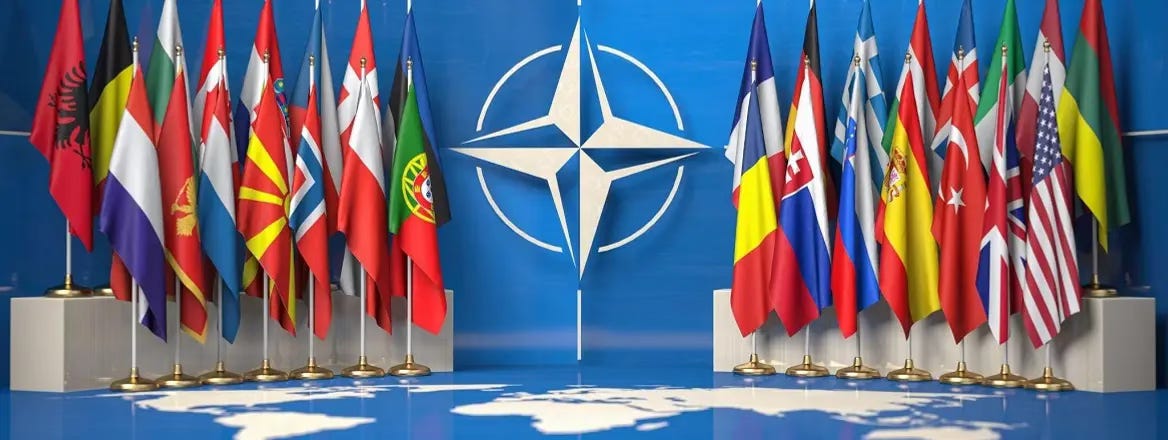
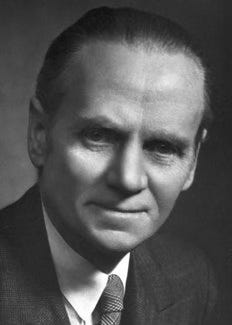
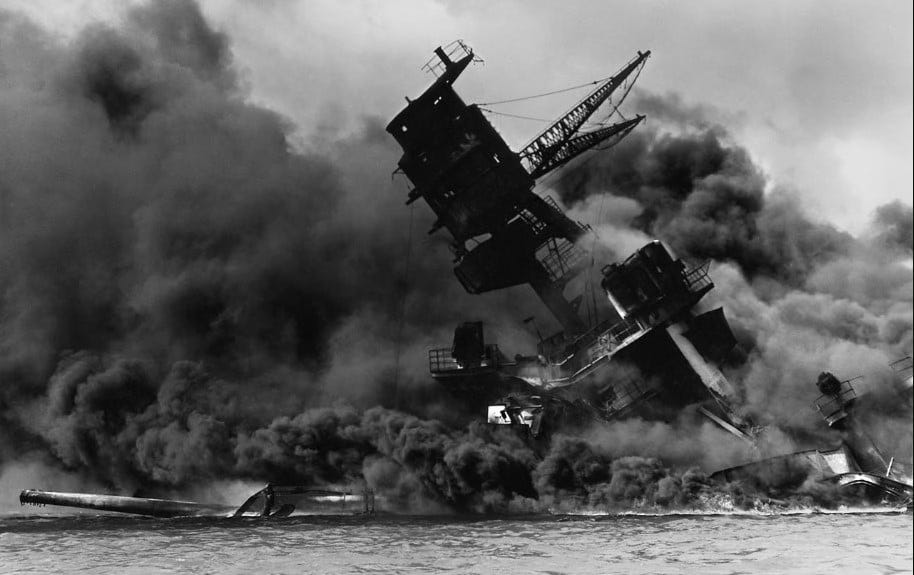
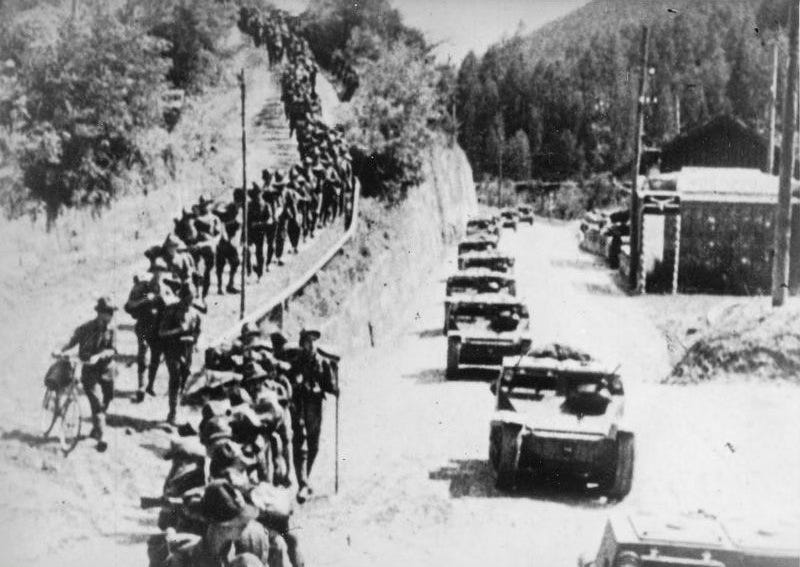
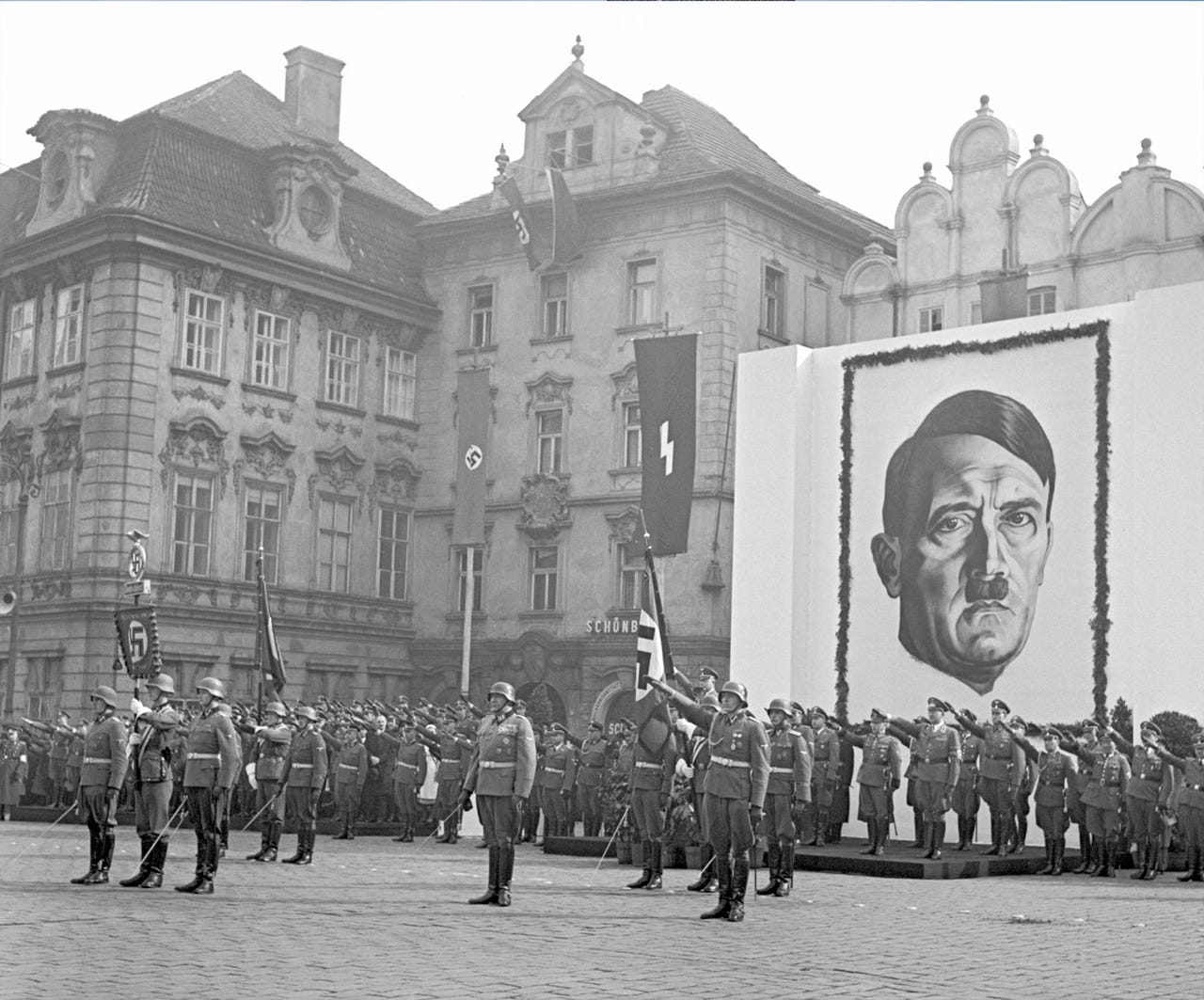
NATO was founded to counter the expansionism shown by Soviet Russia. The US remained part of the alliance throughout the Cold War because the military power of the USSR and its Warsaw Pact allies exceeded that of the European members of Cold War NATO. After the collapse of the USSR, Russia lost all of her dependent provinces and the Warsaw Pact alliance was no more. The European members of NATO were now collectively more powerful than Russia. There was no longer any need for NATO, and it should have been replaced with a purely European alliance, leaving the US to look out for Western interests outside of Europe.
But this didn't happen and now with war in Europe, the US remains tied down in Europe and must necessarily cede Taiwan to China should China decide to take it.
This is really well said, Dan, and I hadn't thought about these questions for much too long. It's important to remind ourselves of the things we know, even the things that we think are obvious, because they are not obvious to everyone -- as evidenced by your negative nancy commenters so far .... :(